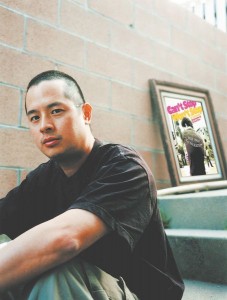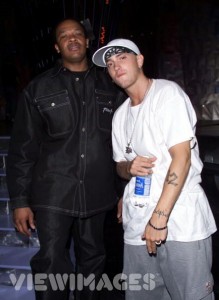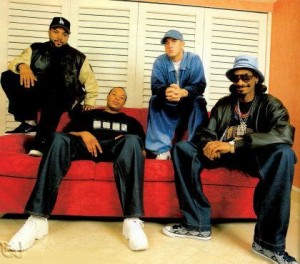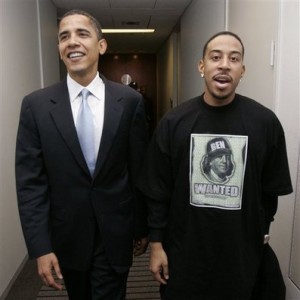Political
Can’t Stop Won’t Stop
I like to think that I know a little bit about the history of the hip hop generation, the crossover of styles that had ignited to form a powerful new genre, and now the manipulation into sub genres which we haven’t even had time to name.
It’s been an explosion that has taken place over a few decades now, and I finally get to read what I feel is the best summary to date; Jeff Chang‘s novel, ‘Can’t Stop Won’t Stop’.
Recommended by a friend from the b-girl breaking side, it covers all facets of b-boy and hip hop culture and also the the world view it has created. From the breakers, the graphers, the dj’s, and of course centre stage today… the emcee’s, rightfully this book does well to stay true to the origins of hip hop in the dj, from the transformation of reggae tracks onto dubplats in Jamaica, the flight of this new culture and idea in Kool Herc to the notorious New York Bronx, and its not so eventual viral like spread throughout the world… Can’t Stop Won’t Stop fills in so many of the blank’s of the experience of ‘being there’ that my generation of appreciators can only envisage or feel through reminiscing.
Profiles – Jeff Chang author of ‘Can’t Stop Won’t Stop’
 Right now i’m just hitting talk of the days of NWA right after Public Enemy have been making waves, and already I have learned so much and come to understand so many re-occurring themes that I’ve heard over my years of listening. The actual happenings taking place in America lead me to thinking, how could we ever have an Australian or New Zealand hip hop culture that we could truly call our own. Are the off shoots of hip hop in countries around the world a homage to the original, or are they creations of their own right. Hopefully by the end of this book I will be have more light to shed on the future of the scene, but if I come up short Jeff‘s got a follow up on that very topic.
Right now i’m just hitting talk of the days of NWA right after Public Enemy have been making waves, and already I have learned so much and come to understand so many re-occurring themes that I’ve heard over my years of listening. The actual happenings taking place in America lead me to thinking, how could we ever have an Australian or New Zealand hip hop culture that we could truly call our own. Are the off shoots of hip hop in countries around the world a homage to the original, or are they creations of their own right. Hopefully by the end of this book I will be have more light to shed on the future of the scene, but if I come up short Jeff‘s got a follow up on that very topic.
For someone who doesn’t read all that much, I can recommend this book to anyone who is interested in hip hop cultures origins, and until i’m finished reading this book, I Can’t Stop, and I Won’t…
finish it in a cheesy way like that.
you can check out more of Jeff Chang at:
…bs
Cellphones are killing us – Trillion reports
Yo people listen up…
If your one of these kids who are lucky enough to be rocking a cellphone (a.k.a mobile phone, 2way, ring a ding ding thing), then New Zealand conscious hip hop artist Trillion points out… maybe your not as lucky as you think?
Often bringing interesting pieces to the community, he delivers once again with this piece ‘Invisible hazards in the wireless age (The Cellphone Song)
Hmmmmmm … I use my cellphone all the time, and it heats up aswell which is now of more concern to me then ever. Ignorance is bliss, but information is power, so maybe i’ll turn to the land line in future.
If you’ve got a minute free make sure you check out his track ‘Wallpaper’ i’ve been hooked on lately too on myspace, another testament to Trillion being one of the finer producers in Australasia these days.
With messages packing heat
and banging beats
looks like another dope musician
from the kiwi streets
You can check out more of Trillion at:
…bs
Kia ora
What About Me – 1 Giant Leap
The first post I am making for 2009, (oh yeah, Happy New Year people!) is a documentary series comprising of a TV series, film and album, created by two visionary filmmakers. Duncan Bridgeman and Jamie Catto travel the world with the goal of creating the biggest global music jam in history in ‘What About Me’.
The movie(s) tells of their journey travelling through 50 locations to create a universal piece of music, while interviewing some of the world’s leading actors, musicians, and activists. Departing from the typical Hollywood model, the two filmakers also take the time to interview some of the world’s unsung heroes they met along the way, “weaving original musical collaborations with soul-searching conversations and stunning imagery.”
‘Collective insanity’ is one commonality these film-makers have touched upon as they interact with people from all walks of life. That although we as communities have different music, lifestyle, opinions, and cultures, we are all instinctively drawn towards the same emotional, practical, and spiritual needs, in order to survive and co-operate as societies.
‘What About Me’ – Series Trailer
The DVD is an album of 11 short films each featuring a piece of music and a theme and a twelfth feature-length film that plays the films continuously. The double DVD will also contain the seven TV episodes as a companion to the short film. With artists such as Michael Stipe, Will Young, Brother Speech of Arrested Developement, Carlos Santana, Maxi Jazz, Alanis Morissette and K D Lang among many others, this art work is sure to be worth a watch for appreciators of music and humanity, if that’s not too broad.
You can check the series out for yourself at:
and for those of you in Australia at the moment, ‘What About Me’ will be airing on ABC during January and February.
Special thanks to www.ilikemusic.com for the interesting review they posted on this series.
…bs
Andrews on Whiteness and EMINEM in 8-Mile, 2008
Salutations my peoples, as some of you will already know, we are developing a fuller site with a ‘community area’ being created. This area will have a fullish set of resources from where to learn, see, play, collaborate with other appreciators and educators of music, art, and our slice of culture. One of the additions that we will be lucky enough to have is from an American man named Vernon Andrews whom I met back at Canterbury University while I was studying there in the early 2000’s. I was studying Law and Finance myself, so you can imagine my surprise when I heard that there was a new guy taking a class under the banner of ‘American Studies’ called ‘Hip Hop Culture’…
I was like “what the F**K?”
so my accounting (or maybe it was statistics) studies suffered a little because even though I wasn’t enrolled in this course, I was sure enough sitting in that class with all of the other kids, and I could tell that I wasn’t alone in this by the number of people who were chilling out in the lecture hall stairways and standing areas.
So Vernon has kindly agreed to contribute some materials for the site when it is developed which can help those who wish to trace some of the roots and deeper meanings of this culture. I’m really looking forward to this area being uploaded and people being able to check out the amazing work he has put together over some time, and I am really happy to present a first piece as an introduction to what you can expect in the future…
The following exert is: Andrews on Whiteness and EMINEM in 8-Mile, 2008
While there have been key white figures in the history of producing, managing, marketing and rapping – witness the Beastie Boys, Vanilla Ice, 3rd Base, House of Pain and other “popular acts”, in addition to the many “underground acts” – no white artist has had quite the same effect on hip-hop and popular culture as Eminem. EMINEM (in all caps here, but not to follow) has managed – and been managed – to have staying power.
Eminem has teamed with Dr. Dre, or more appropriately, Dre has “discovered” Eminem, and together they have made millions. Indeed, Eminem has gone on himself to “discover” other acts such as 50 Cent. Eminem is now a “brand” as they say these days (don’t get me started on the All Blacks) and has successfully marketed himself to a broad international audience. Anger fuels his staying power, in addition to clever rhymes, “taking the piss” out of himself, and always reflecting on his whiteness and “outsider” status as, in his own words, “trailer trash.” In addition to being white, he also dies his hair blond – just in case we might have any doubt about his Caucasianess.
 Eminem also has the ability to reach – to identify with — a broad swatch of middle-class America that other rappers might be “too black” for. In this sense, Eminem has almost become like the typical rock-and-roll rebel white youth can identify with without being considered a “wanna-be” (black). He has a white mother, a white father and a white outlook on the country. This is not to take anything away from his affiliation with the poor, with his association with blackness or with his skill as a rapper. But he has the ability to relate to angry white youth in a way African Americans can not.
Eminem also has the ability to reach – to identify with — a broad swatch of middle-class America that other rappers might be “too black” for. In this sense, Eminem has almost become like the typical rock-and-roll rebel white youth can identify with without being considered a “wanna-be” (black). He has a white mother, a white father and a white outlook on the country. This is not to take anything away from his affiliation with the poor, with his association with blackness or with his skill as a rapper. But he has the ability to relate to angry white youth in a way African Americans can not.
One problem – some might say the biggest problem – white youth have in suburbia is not only fitting-in in high school, but also family dramas. I have long held that most contemporary American films lead to one theme – Family. More to the point, the re-unification of broken families (look at any disaster film and you will get the point, “where’s little Jimmy?” “We’ve got to save little Amy!” “Honey, I am coming to get you – I love you!” are common refrains that can be seen in 99% of disaster movies, and at least 80% of all other films. Don’t get me started…). In this sense, Eminem has latched on to this subterranean angst in America (American Beauty won the academy award because it perfectly encapsulated the imperfection of families in beautiful suburbs; Desperate Housewives is running with the plot) and used it to his advantage. He sings often about little “Haley,” his break-up with his ex-girlfriend (and getting back together, and breaking up again), and his love/hate relationship with his mother. Name an African American rapper who speaks as much about family dramas?
This is not a criticism. Rather it is a reflection on the differing themes of artists that might have to do with location, race, class and social dramas. After all, it would ring hollow to many if Eminem were to wax on forever about being harassed by the cops, denied jobs, and having family members on crack. Just like the Tui ads, people would say, “Yeah, right.” He does, however, touch upon the number one suburban socially acceptable dysfunction – alcoholism (via his mom). In noting this problem he is tapping into an identifiable and easily recognizable problem for white youth to relate to. And I should say it is not only about suburban whites; Eminem relates to poor whites also. If I was a poor white guy of 17 years, I’d think Eminem was a good rebellious figure for me to attach my image to without being considered a “sell-out” or “whack.”
8-Mile
In the film “8-Mile,” Eminem is shown “pre-Dre” in his early days of trailer-park living and being bullied by black rappers who whites can easily tag as “racist” for harping on the young Marshal Mathers’ whiteness. This must present at least a little cognitive dissonance for young whites who have been raised to be opposed to racism – and now seeing their new hero attacked because of, well, his race. The film, I believe, attempts to neutralize this by presenting “good blacks” – Eminem’s friends and associates who are “down” with him. The net effect, I believe, is the feeling that the protagonist has had to overcome many hurdles to achieve in the tough world or rapping, and not the least of his hurdles is that he is bullied and beaten-up. Any young male is very familiar with this theme – suburb or not – as it is a fear all youth between 10 and 18 must negotiate in adolescence. Taking a beating and – at the same time – protecting your family from any harm (he ushers his sister into the house and away from danger) is, once again, the age-old theme coming forth.
 In addition, another theme of the film is to answer the unspoken question: “Why should I care about a white rapper? Who is this guy?” In this sense, the film is a stroke of genius. We feel (before the film) that rap music is by the poor, the black, the male, and the downtrodden. That represents the “authentic.” Many of our readings this semester have reflected this theme, in addition to our discussions in class. So how does Eminem authenticate himself? How does he prove he is not just the next Vanilla Ice – posing and faking and in it for the short-term cash (nothing wrong with that, by the way). He gets a beat-down, works in a factory, picks-up the hot woman, lives poorly, hangs out with black folks (and for good measure, another white guy), gets nervous before going on-stage (and thus is human and not super-cool), broods like James Dean (1950s film star known for his quietness and staring off into space), and – here it is – becomes blacker and more authentic than the black guy he’s rapping against!
In addition, another theme of the film is to answer the unspoken question: “Why should I care about a white rapper? Who is this guy?” In this sense, the film is a stroke of genius. We feel (before the film) that rap music is by the poor, the black, the male, and the downtrodden. That represents the “authentic.” Many of our readings this semester have reflected this theme, in addition to our discussions in class. So how does Eminem authenticate himself? How does he prove he is not just the next Vanilla Ice – posing and faking and in it for the short-term cash (nothing wrong with that, by the way). He gets a beat-down, works in a factory, picks-up the hot woman, lives poorly, hangs out with black folks (and for good measure, another white guy), gets nervous before going on-stage (and thus is human and not super-cool), broods like James Dean (1950s film star known for his quietness and staring off into space), and – here it is – becomes blacker and more authentic than the black guy he’s rapping against!
This is the focal point of the film – the final rap battle. Herein we see the plot building and coming to the fore – we know that Eminem will be dissed as a shallow white boy in the final battle – so why not go ahead, Eminem says, and diss myself – taking all of the ammunition away from my opponent? This is an old debate trick we leaned back in my undergraduate days.
If you are to debate on a key issue in competition, then figure out your weakest points – and your opposition’s weakest – and use them in your own speech! It is called “stealing thunder.” If I know your strongest weapon I will try to take that away from you. Once your enemy does this, they have won a psychological battle. Eminem thus “outs” his rival as being from the suburbs, middle-class, from a two-parent home and a private school and with a white-boy’s name and with, basically, no real authenticity. Indeed, Eminem goes on to paint himself as poor, white, trailer-trash from the bad part of town and thus, really, more authentic than many black rappers who consider themselves “down.” Genius, pure and simple. Academy award, big bank, big career. Of course, one has to have the lyrics to back up all this on-screen drama, but I think he pulls it off well.
You can check out more hip hop culture from Vern when we upload the site in early 2009
…bs
Obama knows his hip hop
I didn’t want to name this article in such a way that I am making an unreasonable assumption, or simply exaggerating a point to make sensational news, so I went with what is self evident from his presidential campaign… Barack Obama knows his hip hop. There is no need to sensationalise my opinion in this instance, because the way in which I perceive that Barack Obama has utilised hip hop in his election is not only simple and obvious, but transparent as you can see from the way he openly discusses his thoughts in the below video. To this day, I have not heard anyone other then a few of my favourite artists articulate how I feel about hip hops place in the world better then the way that Obama has done in this video.
An extremely important point of debate in the build up to many of America’s recent election campaigns, and especially in this most recent time has been the youth vote. Without turning this piece into an essay, in short, young people traditionally do not vote in large numbers and so it follows that many candidates and parties have tried (with varying degrees of failure) to capture the youth vote that has been going unused.
So if you want to engage an audience of youth, it seems that you would need to have a communication channel that they respect and identify with, and what in America do you think that the emerging dominant voice in this age group might be? hmmmmmmmmm… which is what i’m simply saying… Obama knows his hop hop, and more importantly he understands the power that it has to influence and even mentor an amazing community of youth and adults alike throughout the USA and the world.
Put into context in my situation, having no television over the duration of his campaign, I heard only occasional pieces of information in support of his growing popularity and increasing chances (according to poles on news shows and papers that I would read from time to time). It was only through Hip Hop that I was exposed to Obama intentionally for more then a brief moment, and not once, but several times in pieces that I was came accross in my every day life as an everyday member of the hip hop community.
This article is admittedly based on my personal opinion, however researching this online I found out there were so many people who share in this opinion, even Dizzee Rascal is feeling it.
For a long time now I have held the opinion that if someone really had a message that they felt should be heard, or a desire to influence their community, the two options were to be a politician or a musician. I am hopeful that this new president will remind the world of the amazing impact that politics and music can create when in harmony, with the use of hip hop. I’m also hopeful that he establishes subsidies for international artists with a positive message who wish to tour the states, ’cause that’d be awesome please bro.
You an check out more of Obama on:
Television, news, papers, radio, internet, talking to your mates, at the white house.
…bs
Search
Latest Articles
- Mike Who – Fresh Mixtape for yo ears… Niceness Vol 1
- Omar Musa – World Goes to Pieces
- Rise Festival – Melbourne Sunday
- Space Invadas Launch Soul-Fi Tour
- Pataphysics Remix – Mos Def: History featuring Talib Kweli (REMIX)
- Fink is in Melbourne
- Dead Prez Melbourne side show with Pataphysics
- Olmecha Supreme VS Pataphysics kicks off
- Departure Lounge In Session
- Tahuna Breaks – Black Brown & White
Archives
- August 2010
- July 2010
- May 2010
- April 2010
- January 2010
- November 2009
- October 2009
- September 2009
- August 2009
- July 2009
- June 2009
- May 2009
- April 2009
- March 2009
- February 2009
- January 2009
- December 2008
- November 2008
- October 2008
- September 2008
- August 2008
- July 2008
- June 2008
- April 2008
- December 2007
- October 2007
- September 2007
- June 2007
